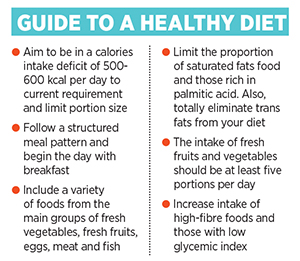
The importance of being fit: Vijay Thakkar
Even a moderate increase in an individual's economic prosperity seems to be associated with marked increases in the rate of non-communicable diseases
 Image: Shutterstock
Image: Shutterstock
Urban lifestyle is characterised by a fast pace in which individuals are expected to be at the peak of their cognitive performance. This has happened due to the highly demanding professions in the modern world. While the older occupations provided monetary benefits for physically demanding work, contemporary jobs demand longer working hours in offices and reduced physical activities. These give more monetary incentives for working single-mindedly for a minimum of nine hours a day and six days a week.
Urban civilisations are also marked by increasing female participation in the economic workforce, which has brought a natural shift away from traditional methods of food preparation, and towards increased consumption of processed food. Even a moderate increase in economic prosperity of an individual seems to be associated with marked increases in the rate of non-communicable diseases (NCDs) such as obesity, cardiovascular diseases, cancer, etc, which lead to a diminished quality of life and life expectancy. As per World Health Organization estimates, NCDs cause 60 percent deaths globally, of which nearly 80 percent occur in low- and middle-income countries. These premature deaths impact the progress of society by adding an economic burden on the productive adult population, causing loss of income to families.

While this looks worrisome, the good news is that research has shown that small changes in lifestyle, inclusion of physical movement and eating nutritious food can mitigate the risks of developing NCDs. Diets comprising low glycemic index food such as lentils, non-starchy vegetables and fresh fruits are effective in managing weight and help in lowering prevalence of NCDs (see ‘Guide to a healthy diet’). Research also demonstrates that an average individual should exercise at least 30 minutes for five days in a week. This can be done by joining a health club, fitness centre, climbing the stairs or walking whenever possible, and encouraging standing meetings at workplaces.
- The author is the founder of 48 Fitness
(This story appears in the 13 October, 2017 issue of Forbes India. To visit our Archives, click here.)















